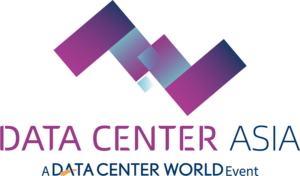As the global demand for digital infrastructure surges, data center colocation providers are under increasing pressure to balance scalability, efficiency, and sustainability. This challenge is particularly acute in emerging markets like Indonesia, where rapid digitalization drives data center growth but also raises concerns about resource consumption—especially water.
At the same time, Data Center Asia HK 2025, held from 15-17 July 2025 at AsiaWorld-Expo, Hong Kong, offers a unique opportunity to explore the (short-form topic: liquid cooling and closed-loop systems). Join us to explore the latest data center innovations and applications. In this article, we’ll examine how cutting-edge cooling technologies are transforming the Indonesia data center market and beyond.

The Water Crisis in Data Center Operations
Water scarcity is no longer a distant threat—it’s a pressing reality. Traditional air-cooling systems, which rely on evaporative cooling towers, consume millions of gallons of water annually. For data center colocation providers in Indonesia, this poses a dual challenge: operational costs skyrocket as water prices rise, and environmental regulations tighten. The Indonesia data center market, projected to grow at 15% annually through 2030, must innovate to sustain this growth sustainably. Meanwhile, global trends toward carbon neutrality and corporate ESG (Environmental, Social, Governance) goals amplify the urgency for water-efficient solutions.
Innovations at Data Center Asia 2025: Liquid Cooling Takes Center Stage
At Data Center Asia 2025, liquid cooling and closed-loop systems emerged as the stars of sustainable data center design. These technologies promise to revolutionize how we manage heat in high-density computing environments. Liquid cooling, which transfers heat via immersion in non-conductive fluids or direct-to-chip liquid channels, reduces water dependency by up to 90% compared to traditional methods. Closed-loop systems, which recycle coolant within a sealed circuit, eliminate evaporative losses entirely. Our team observed firsthand how hyper-scale colocation providers in Indonesia are already adopting these solutions to cut operational costs and align with green building certifications like LEED or BREEAM.
Conclusion
The transition to liquid cooling and closed-loop systems represents a paradigm shift in data center sustainability. For colocation providers in Indonesia and beyond, these technologies offer a path to scalable, efficient, and eco-friendly operations. As the Indonesia data center market continues to expand, innovations like those highlighted at Data Center Asia 2025 will be pivotal in driving this transformation. By embracing liquid cooling, providers can reduce water footprints, cut operational costs, and align with global sustainability trends—all while meeting the demands of a rapidly growing digital economy. Join us at Data Center Asia HK 2025 to witness how the future of data center cooling is being redefined—where innovation meets responsibility, and every drop of water is preserved for a more sustainable tomorrow.



